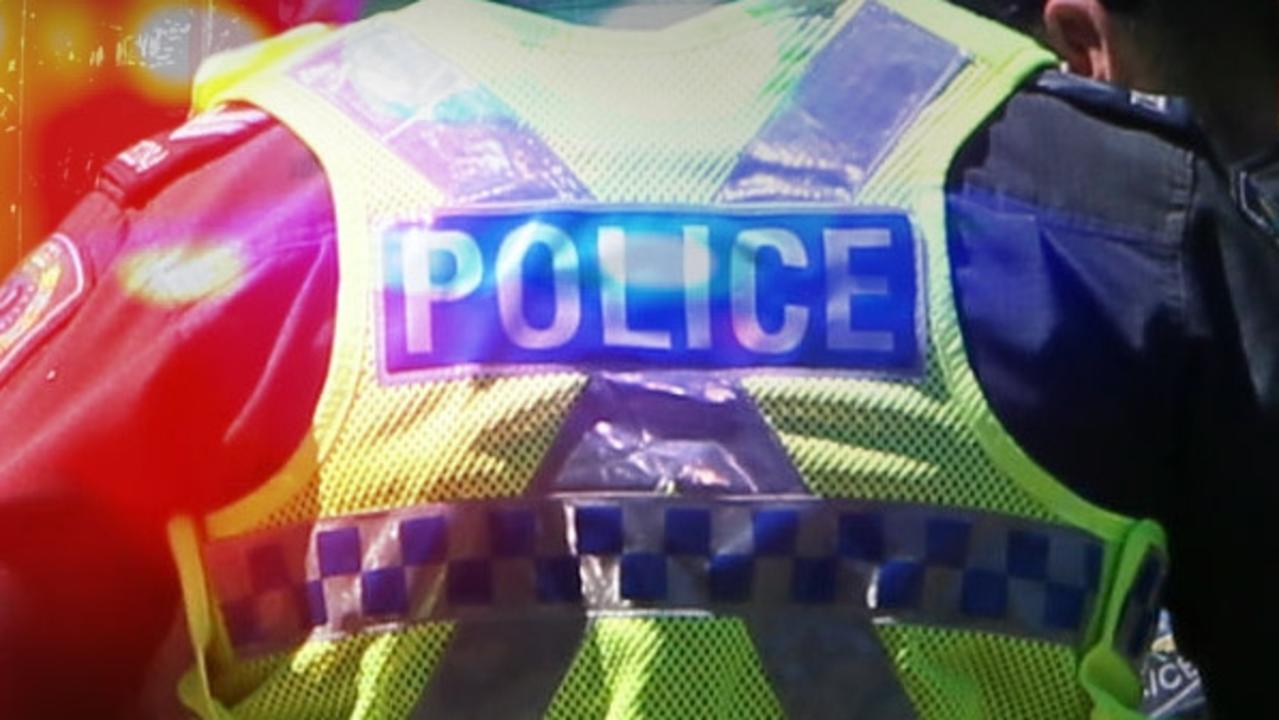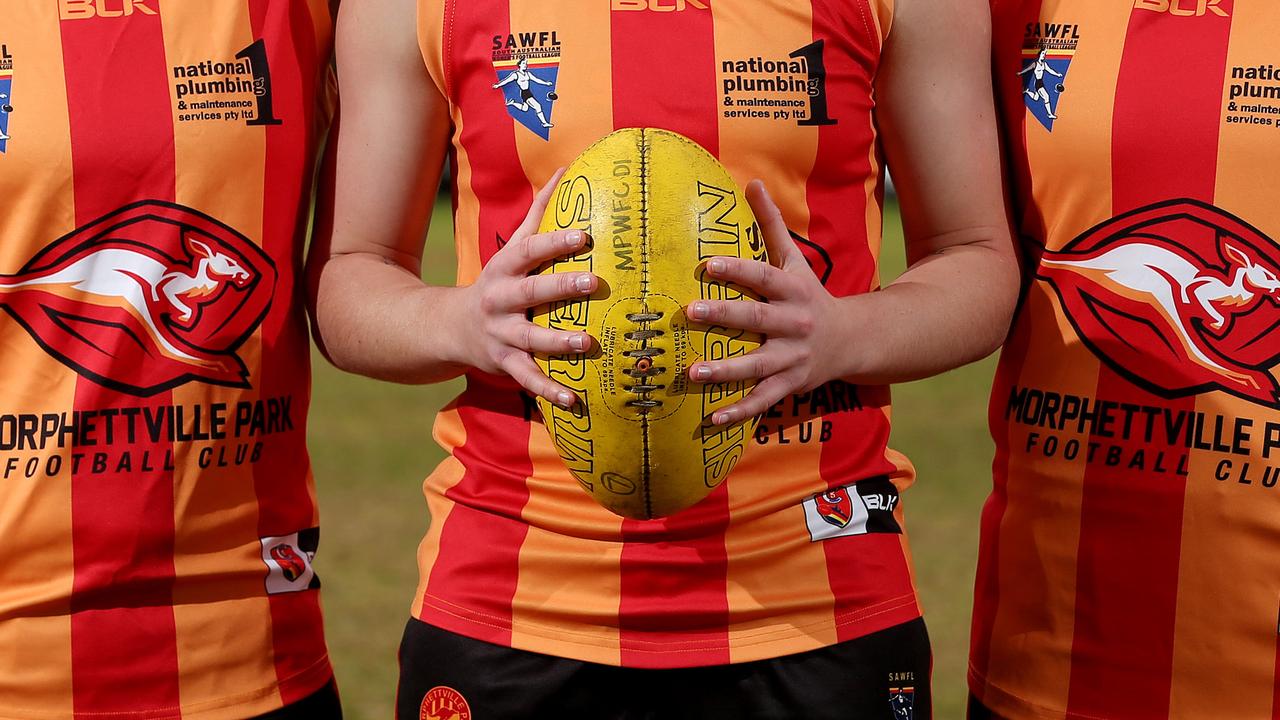Our ambo crisis: The long waits that cost lives
When ambulances are ramped, they are unable to respond to other emergency calls, creating anxious waits for desperate families. Here we talk to those who had to wait too long.

SA News
Don't miss out on the headlines from SA News. Followed categories will be added to My News.
Ambulance ramping hit record levels this year, frustrating hardworking paramedics and leaving ill patients waiting in carparks.
When ambulances are ramped, they are unable to respond to other emergency calls, putting further pressure on an already stretched system, and creating anxious waits for desperate triple-0 callers.
Grieving families and friends have this week shared heartbreaking stories about how their loved ones waited too long for ambulances to arrive, with tragic consequences.
Ambulance Employees Association general secretary Leah Watkins said the ability of the SA Ambulance Service to meet its emergency response times was critical to providing life saving treatment when needed.
“The fact that the SA Ambulance Service is failing to do that, is a foreseen failure of this (state) government,” she said.
An SA Ambulance spokeswoman said many factors influenced the service’s response to a patient.
“SAAS will always respond to South Australians categorised with life-threatening conditions first,” she said.
Health Minister Stephen Wade said the government had, as part of its Covid-ready plan, “significantly boosted ambulance resources”.
“We have announced a doubling of both the 2021 and 2022 paramedic intern intake, as well as more triple-0 call takers and up to 100 final year paramedic students forming a standby workforce to support patient transport,” he said.
Mr Wade said an extra 74 full-time equivalent ambulance officers were funded in this year’s state budget and the government was upgrading every suburban hospital and expanding almost every metropolitan emergency department as well as several peri-urban EDs.
Opposition health spokesman Chris Picton said ramping had increased by 576 per cent over the past four years.
He said if Labor was elected at the March 2022 state election, it would cancel the government’s proposed $662 riverbank arena and “invest the entire sum into fixing the ramping and health crisis”.
Almost 45,000 people have signed a petition that was tabled in state parliament in November, calling on the state government to “take immediate steps to provide a long-term sustainable funding stream” to address escalating demand on the ambulance service.
Earlier this month, a parliamentary inquiry was launched into SA ambulance ramping and resourcing in response to the petition.
The Advertiser also reported that leaked statistics revealed almost 65 per cent of ambulances had been unable to transfer their patients to Flinders Medical Centre’s emergency department within 30 minutes to comply with new legal directions.
‘NOT ENOUGH AMBULANCES TO MAKE THE SYSTEM WORK’
Marina Obbiettivo adored elephants, Audrey Hepburn and true crime podcasts – But most of all she loved her family and doted on her young grandchildren.
But on Monday, August 9 this year, the bubbly hairdresser, 60, experienced the tragic consequences of an ambulance service at breaking point.
It was 3.30am that morning when Mrs Obbiettivo, 60, woke abruptly, struggling to breathe and suffering excruciating shoulder pain.
An ambulance was immediately called before husband Carmine, also 60, began comforting his wife on the floor, telling her help was on its way.
The Obbiettivos live between one to five minutes’ drive from their nearest ambulance station, depending on traffic. Surely paramedics wouldn’t be too far off, they thought. After all, Mrs Obbiettivo’s case was classified as a “priority two” call-out, meaning an ambulance, rushing with lights and sirens, should arrive within 16 minutes.
Ten minutes passed. Twenty minutes passed.
Any minute now, paramedics would race through the door and rush Mrs Obbiettivo to hospital where everything would be all right, they hoped.
After 25 minutes passed, Mr Obbiettivo rang his daughter Alessia Masson, 34, in a panic, Mrs Masson’s husband Andrew Masson, 37, recounted.
“My wife could hear her mother on the other end of the line, gasping ‘help me, help me, please god help me’,” Mr Masson said.
An ambulance finally arrived 10 minutes later – about 35 minutes after it was called.
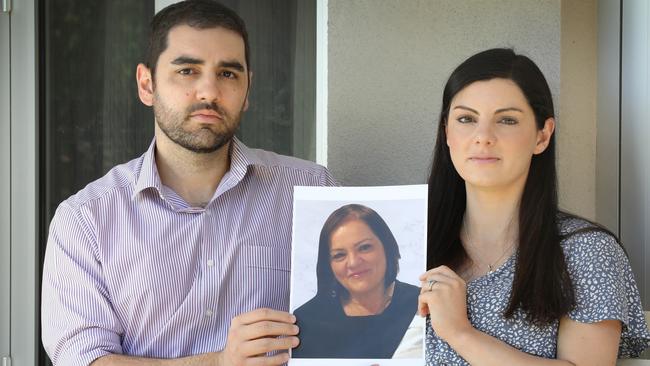
Mr Masson said 35 minutes was more than enough time to get to the Obbiettivo’s house and drive his mother-in-law to the Royal Adelaide Hospital, with time to spare, “if there had been an ambulance to get her”.
“Instead, her husband sat on that floor holding his wife and telling her that someone would be there soon, while she lay terrified and begging for help …. wondering where the ambulance was,” Mr Masson said.
Paramedics tried to resuscitate the unconscious Mrs Obbiettivo but she was pronounced dead at the scene.
The devastated family hopes their story will shine a light on the need for more resources for paramedics and ambulance officers, whom they do not hold responsible for Mrs Obbiettivo’s fate.
Mrs Obbiettivo’s son Luca Obbiettivo, 33, said ambulance workers were “obviously not supported enough”.
“They don’t have enough ambulances and paramedics to make it work,” he said.
Mrs Masson, who described her mother as “very bubbly and funny,” said more communication was needed between the ambulance service and patients.
She said this could enable family and friends to take action if an ambulance was going to be delayed, such as driving the patient to a hospital themselves.
‘IF AN AMBULANCE ARRIVED SOONER, WOULD JASON STILL BE HERE?’
Jason Mountstephen had volunteered for the SA Ambulance Service for more than 10 years, taking pride in helping his community and its residents in their time of need.
However, on July 12, 2019, it was Mr Mountstephen who needed an ambulance.
At just 34 years of age, the carpenter collapsed in the family home in Goolwa and went into cardiac arrest.
His panicked parents quickly called triple-0 for help.
Mr Mountstephen’s father John performed CPR while his mother Fely relayed instructions from the triple-0 calltaker.
An ambulance arrived 25 minutes later with crews working on Mr Mountstephen for a further 45 minutes before calling his time of death as he lay on the floor in front of his devastated mum and dad.
Mr Mountstephen’s sister Melanie Mountstephen, who had also volunteered with the ambulance service for more than a decade, said the family was surprised it took so long for an ambulance to arrive. Stations are located in both Goolwa and Victor Harbor.
“It was unfortunate the night he passed, local crews were ramped in Adelaide and tasked to other jobs, leaving our town and area vulnerable,” she said.
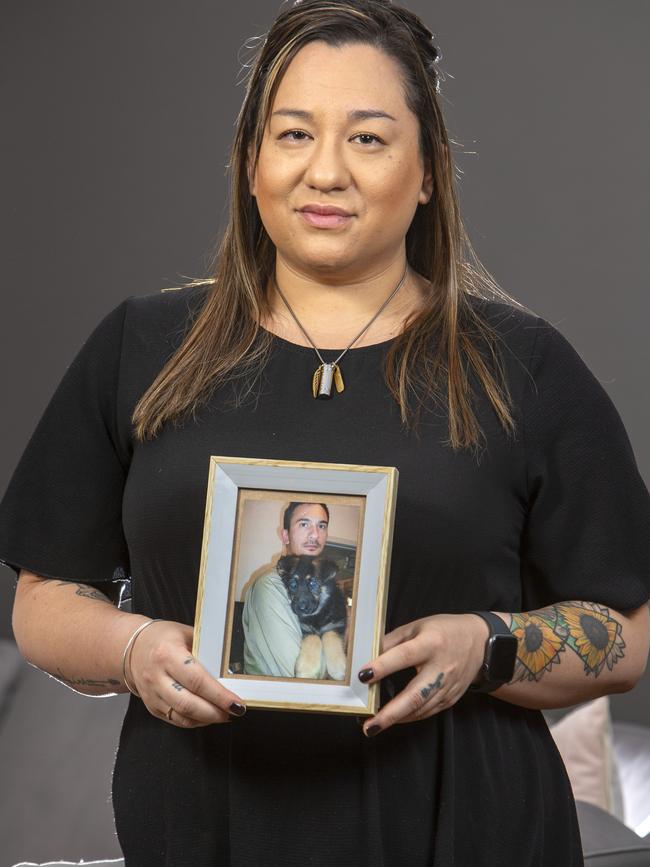
Ms Mountstephen, 34, of Hayborough, said her family tried not to dwell on the “what ifs” but could not help but wonder if the outcome may have been different if an ambulance had been there earlier.
“We are tortured with thoughts such as: if an ambulance with a defibrillator and adrenaline had arrived sooner, would Jason have made it?” she said.
“Would he have had the chance to make it to a hospital instead of my mother and father laying on the floor holding their son for the last time?”
The Mountstephens don’t blame the ambulance service or its dedicated officers for what happened to Mr Mountstephen, acknowledging the “system is so stretched”.
“They hurt, they see and hear the desperation in the eyes and voices of patients and their families, but their hands are tied,” she said.
Ms Mountstephen, who described her brother as a “down-to-earth, caring and funny person,” said the state government needed to put “extra resources on the road and in our hospitals” to help ambulance officers help the communities they so tirelessly serve.
‘ALMOST A THIRD WORLD COUNTRY’
“You could almost compare it to living in a third-world country.”
This is how Joanne Toft describes the state of South Australia’s ambulance service.
But it’s not because paramedics and volunteer ambulance officers aren’t doing the best they can – it’s because there simply isn't enough of them to handle the increasing workloads in growing townships, the Prospect Hill resident says.
Mrs Toft has experienced first-hand the consequences of a lack of available ambulances.
Her husband Stephen Toft died at his local pub, the Strathalbyn Commercial Hotel, on July 11, 2020, after waiting for an ambulance for more than half an hour.
The triple-0 call, made after Mr Toft, 60, began choking, was originally classified by emergency services at a priority two case but quickly escalated to a priority one situation. This mean an ambulance should have arrived within seven minutes.
An ambulance arrived 32 minutes later.
“I don’t think Stephen would have died if someone was here, if there was medical help quicker my boys would still have a father, I’d still have a husband, my grandchildren would have a grandfather,” Mrs Toft said.
“I feel like you could almost compare it to living in a third-world country.”
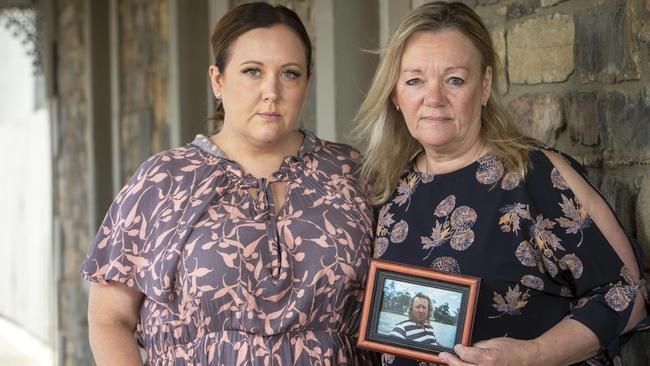
Mrs Toft said her husband of almost 40 years was a “really great father, a good husband, an intelligent person” who was “just a great guy and would help anybody”.
Family friend and Strathalbyn Commercial Hotel publican Stacey Butler said Strathalbyn, with its population of more than 6000 people and growing, had just one paid ambulance.
However, the ambulance does not take emergency calls and only transports patients between hospitals.
The town also has a volunteer-run ambulance but at times, there are no volunteers available.
“We are completely under-resourced,” she said.
“The other day I drove past Mount Barker Hospital and there were six ambulances ramped at Mount Barker hospital.”
Nearby Mount Barker only has one ambulance for its population of almost 40,000 people.
Ms Butler said ambulances should be provided on a per capita basis.
“The local ambulance services should be based on how many people are in the population,” she said.
‘CAN’T GET THE CARE THEY DESERVE’
Creating more capacity within hospitals would help tackle ambulance ramping and free up paramedics, Annalisa Tiggemann says.
The Advertiser in May reported that Ms Tiggemann’s 93-year-old mother Agatha was stuck in the back of an ambulance ramped in the carpark of the Royal Adelaide Hospital for three hours.
Ms Tiggemann at the time, on May 10, said her mother was saying “just let me die” while waiting.
“The poor old ambulance officers kept apologising, the nurses and doctors were fine but there is simply not enough staff,” she said.
There were seven other ambulances ramped at the hospital that day, during which all metropolitan hospital emergency departments were on a Code White.
This meant they were treating more people than their official capacity and there were longer than average waiting times.
Speaking to the Sunday Mail this week, Ms Tiggemann said it was not the first time her mother had been ramped at a hospital.
She said it was not good enough that elderly people, who had worked hard all their lives, were forced to wait for medical care.
“They can’t even get the care they deserve,” Ms Tiggemann said.
“They need to open up more beds and wards – It’s just like a bottleneck.”
Ms Tiggemann said her mother sadly passed away in July.




